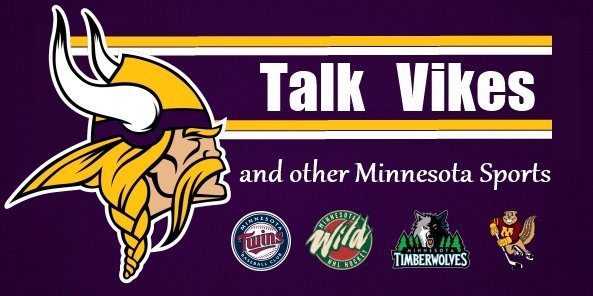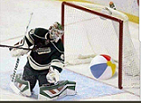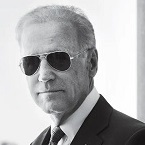Stacey King
Posts: 7989
Joined: 7/21/2007
Status: offline

|
For six innings on Wednesday, the pitcher never looked at the third-base coach and the third-base coach never looked at the pitcher. If they crossed paths after an inning, their eyes were fixed at their feet or in the stands or toward their own respective dugouts.
It’s just easier that way for the two men, who have little in common — age, country or upbringing. One is a grizzled baseball lifer, tough as a piece of shoe leather. He is a walking reminder of the forged men who manned the steel mills in his hometown of Steubenville, Ohio. The other was a pitching prodigy born in Maracay, Venezuela. At 31, he still looks about 25. He’s blessed with an array of pitches and talent, he’s thrown a no-hitter and is in the middle of an $80 million contract.
But they are locked together through a bond that every parent fears and hopes to avoid. Their shared union has been built through tears and tragedy, coping and understanding, loss and remembrance.
With one out in the seventh inning, Anibal Sanchez’s day was done. He’d thrown his 113th pitch on the sun-drenched afternoon at Safeco Field for the Tigers and left his team with a 5-4 lead. He walked off the mound.
This time, he looked toward the third-base coach’s box for the first time in the game. Rich Donnelly was standing there, looking right back. Both men gave a quick nod to the other. It was all that was needed in that situation. They’ve shared enough hugs in their friendship.
“When he’s pitching, we can’t look at each other,” Donnelly said.
“It’s too hard.”
Admittedly, they wish the circumstances of their closeness were different.
In December 2007, Sanchez’s son, Alan, who was born on Sept. 7, 2006, one year to the day he’d thrown his first no-hitter with the Marlins, died after contracting Dengue fever from a mosquito bite. Heartbroken and lost, Sanchez was left reeling.
“It changes you,” he said. “It changes everything.”
He considered quitting baseball. It just didn’t seem important.
“I don’t want anybody to have to go through that,” he said. “It’s very painful.”
But in his grief, he began to realize he wasn’t alone. A friend and coach with the Marlins, Luis Dorante, told Sanchez the story of Donnelly and “The Chicken Runs at Midnight.”
It’s a story about baseball, loss of a child and magic. Donnelly was the third-base coach for the 1992 Pirates team that featured Barry Bonds and Andy Van Slyke and a veteran bench player named Lloyd McClendon.
During spring training that season, Donnelly’s daughter, Amy, was diagnosed with a cancerous brain tumor at age 17 and spent the season undergoing chemotherapy. After watching the Pirates win Game 6 of the National League Championship Series against the Braves at the old Three Rivers Stadium, Amy Donnelly was curious about what her father yelled at runners when he would cup his hands together
“Are you yelling, ‘The chicken runs at midnight?’ ” Donnelly recalled.
It was a funny, amusing comment that came from nowhere. But it became a rallying cry in Game 7 of the series — one the Pirates would lose.
Amy Donnelly passed away a few months later. Fast forward to 1997, Donnelly is in the World Series. He’s coaching third base for the Marlins in Game 7 of the World Series against the Indians. It’s the bottom of the 11th and Craig Counsell, who Donnelly had dubbed the “Chicken Man” and “Chicken” for his nervous flap at the plate, stood next to him.
With two outs, Edgar Renteria singled to center and Donnelly sent Counsell home for the winning run. In the midst of the celebration moments after, Donnelly’s son, Tim, grabbed him, pointed to the clock on the scoreboard at Joe Robbie Stadium — it read 12:01 a.m.
The Chicken had run at midnight, just like Amy had predicted.
Sanchez became captivated by the story. He found a DVD recording of the Lifetime show about the story. He carries it with him still.
“I watched it several times,” he said.
“It helped me get through it. Luis told me Rich was the right person to talk to.”
In the spring of 2008, Dorante and Donnelly were roommates at spring training as coaches in the Pirates organization.
Sanchez, still coping with life without Alan, called Dorante to talk and Donnelly’s name was mentioned. Dorante told Sanchez that Donnelly was sitting right there and handed him the phone.
The two talked about Amy and Alan’s stories. They talked for more than an hour about dealing with life after and moving forward. They promised to meet in person some time.
“He gave me some peace and understanding,” Sanchez said.
The first week of the 2009 season, Donnelly stood in the dugout of PNC Park in Pittsburgh drinking coffee. It was a foggy morning, hiding the downtown skyline behind the outfield walls. A lone player was out running on the warning track in the silence.
It was Sanchez.
Donnelly walked onto the field and introduced himself.
“He gave me this huge hug,” Donnelly said.
“He had tears in his eyes. I had tears in my eyes. He lifted up the sleeve on his right arm and showed me the tattoo of his picture of his son.”
The pain was still there for Sanchez. Donnelly told him it never goes away. Sanchez understands now.
“When a kid comes to you and asks for your autograph, you can see your baby in his eyes,” Sanchez said.
“And you think about if he was alive, how he would look and how he would have been. You are always thinking, thinking, thinking.”
Now, he is doing what Donnelly did for him. A few weeks ago, he talked with Brewers shortstop Jean Segura, whose 9-month old son, Janniel, passed away last July.
“I just used the words that I heard and what I learned from Rich,” Sanchez said.
“I said if you want to talk, I’ve been in the same situation and I know it’s hard. I understand about being down.”
But for all that Sanchez believes Donnelly has done for him, he’s done just as much for Donnelly. To endure doesn’t mean to be alone.
“We’ll be bonded forever,” Donnelly said. “Always.”
|

 Printable Version
Printable Version














 New Messages
New Messages No New Messages
No New Messages Hot Topic w/ New Messages
Hot Topic w/ New Messages Hot Topic w/o New Messages
Hot Topic w/o New Messages Locked w/ New Messages
Locked w/ New Messages Locked w/o New Messages
Locked w/o New Messages Post New Thread
Post New Thread